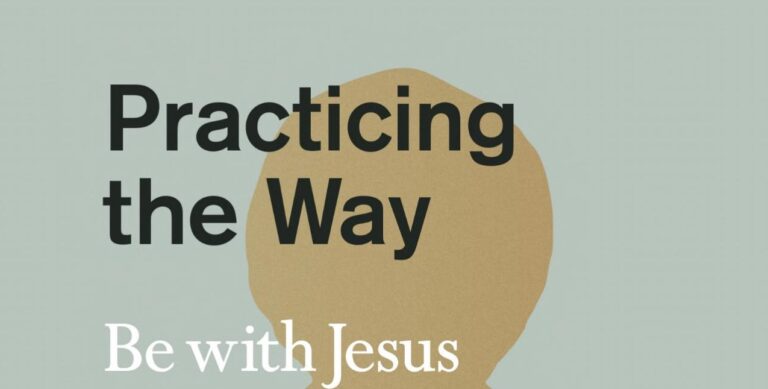Living in perpetual unfairness is exhausting. The agony of waiting not only lies in the nature of the pain itself but also in the unknown duration that we are forced to endure it. Have you ever felt frustrated while you’ve waited for God to change your circumstances? In the fortieth chapter of Isaiah, the prophet encouraged the Israelites to ‘wait for the Lord’ as an encouragement to endure – they were beaten down from years of captivity and weary from unmet longings to return to their homeland.
Shiny eager hopes of returning home slid into pale shades of patience that rolled into disillusionment. Minutes turned into weeks that slid into months that rolled into years. And years. We can relate. During seasons of prolonged waiting, it may seem that we’re calling for rescue from God whose only answer is the silence that makes us feel more alone. It’s fair to want biblical answers about the purpose and process of waiting, and what happens when we refuse.
The Purpose of Waiting
The biblical promise if we wait? That we’ll mount up with wings like eagles (Isaiah 28b-31). An interesting image perhaps, yet its meaning can be elusive. Eagles soar higher than other birds because their extra broad wings enable them to ride currents for prolonged periods of time. Eaglets are trained to glide like this through repeated trust exercises. The mother alters their nest to become physically intolerable and pushes them out if necessary. As they plummet downwards, she catches them on her wings until they learn to posture themselves properly and ride the currents themselves.
When Isaiah links exhaustion with riding eagles’ wings, he is explaining that the distress of waiting can be a catalyst that shoves us from our comfortable nests and teaches us to ride the currents of faith with our Father. We cannot only survive the waiting process, we can soar within it. Our focus must be to learn how to posture the wings of our hearts toward resting – not floundering – in Jesus, trusting His unknown flight plan regardless of how bumpy or prolonged the ride may be. Mounted on Jesus’ wings, our strength is renewed rather than depleted because we’re not exerting ourselves, but resting upon His strength.
The Process of Waiting
We find rest in Jesus’ strength through studying His word and prayer – in our submission to His sovereignty and our enjoyment of His personal care. Serving others while waiting will help keep our frustration in perspective, and practicing gratitude will help us learn contentedness regardless of the outcome. We are to wait quietly (Lamentations 3:26) in stillness of heart (Psalms 37:7), with Jesus’ strength (Psalms 27:14), trusting that God acts on behalf of those who wait for Him (Isaiah 64:4), and remembering that perseverance produces character which produces hope (Romans 5:4).
What Happens When We Refuse To Wait
When we push ahead impulsively in our own strength and timing, we’ll fail badly. Moses knew that he was God’s chosen leader to rescue the Jews from slavery. Instead of waiting on God’s timing, he murdered an Egyptian oppressor in a passionate outrage and ended up living in exile for forty years. Instead of trusting God’s timing, Abraham slept with his wife’s maidservant to secure the heir God promised. Abraham then suffered the exile of his firstborn from his life and the lineage of Christendom’s greatest enemy began. When we exert our control over God’s timing, we fail to submit to His sovereign flight plan. Our attempt to escape the wait will not only fail, but we will make it worse by adding suffering on top of it. Our job is not to demand its cessation, but to allow Him to mold our character through its pressure.
Expect To Wait
Waiting is a normal part of the Christian experience and being prepared for it can help us maintain proper perspective when it arrives. Abraham waited 25 years for the son God promised to be born. Joseph waited 20 years for the dream of his brothers bowing before him to be fulfilled. Moses led the Israelites from Egypt 40 years after he realized that he was God’s appointed rescuer. David became king 14 years after Samuel anointed him. Hannah was ridiculed for barrenness by her husband’s other wife for years before she conceived. The list of prolonged waiting aches on.
We can read the conclusion of their stories along with the beginning –they each exited the waiting period in God’s timing, and through the squeeze of remarkable righteousness. Abraham readied himself to kill his promised son Isaac because he’d learned to trust God’s plan in spite of not understanding it. Joseph forgave and restored his brothers for their betrayal while exalting God’s sovereign plan as his pain’s ultimate purpose. Moses verbally battled Pharaoh as a humbled shepherd with a speech impediment. Hannah fulfilled her promise to God by giving her firstborn to permanent temple service.
It can be disillusioning to have godly purposes lie seemingly unheard within us. Yet we can be encouraged to know that the pressure of waiting is appointed by God and a normal part of the Christian experience – it serves to shape our character to better know and reflect Christ’s beauty. Submitting willingly to its process declares that our chief aim is not happiness but the glory of God. So let’s prepare for seasons of prolonged waiting instead of bucking wildly against them when they arrive. Collectively, God is weaving our lives into the much grander storyline of humanity. Personally, He wants to draw near to us and give us His comfort and strength. If we posture ourselves to rest on His wings during the wait, He will glide our souls straight into the embrace of Christ Himself to love and transform us to the glory of God.
“He does not faint or grow weary; his understanding is unsearchable. He gives power to the faint, and to him who has no might he increases strength. Even youths shall faint and be weary, and young men shall fall exhausted; but they who wait for the Lord shall renew their strength; they shall mount up with wings like eagles; they shall run and not be weary; they shall walk and not faint” (Isaiah 40:28b-31).
























